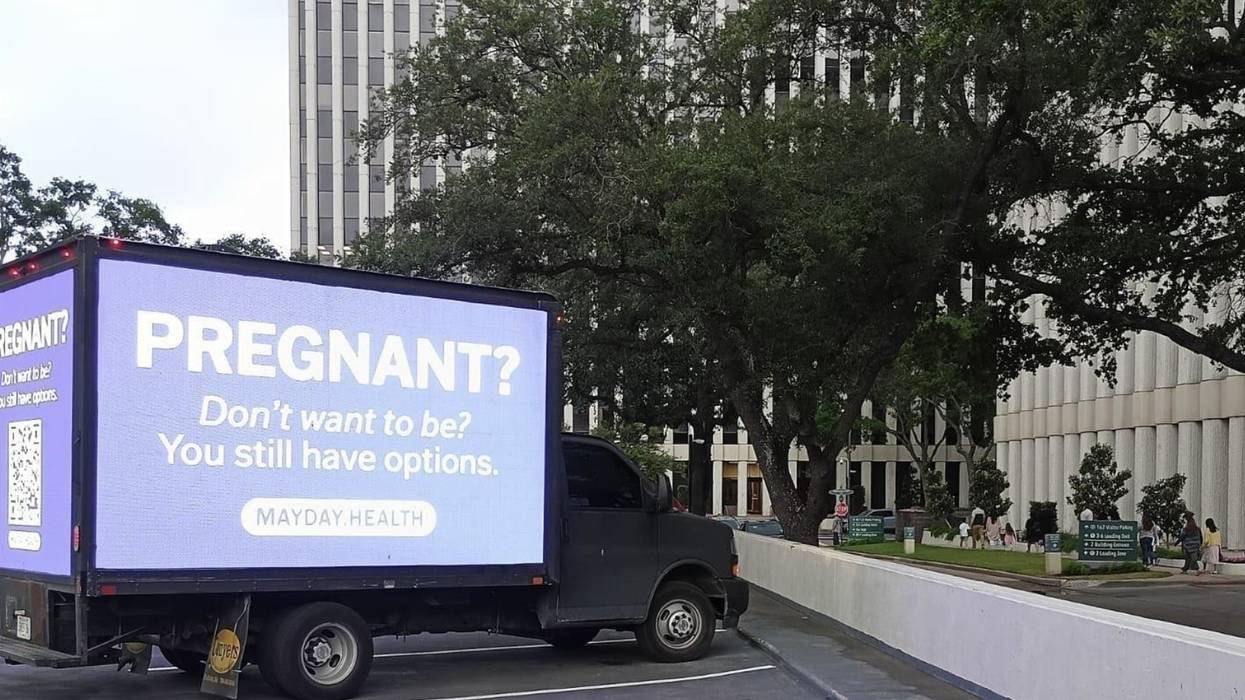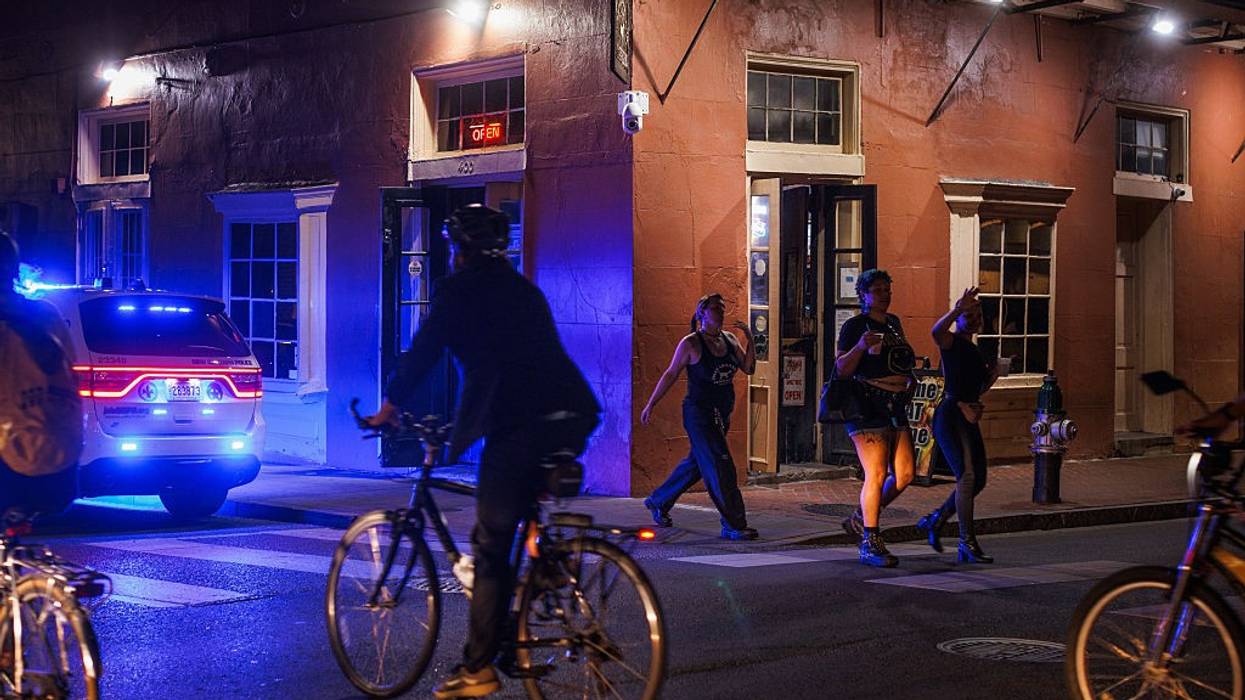The blitz—which began on the same day as a similar operation in Minneapolis and follows federal invasions of cities including Charlotte; Chicago; Los Angeles; Memphis; Portland, Oregon; and Washington, DC—is expected to involve at least hundreds of federal agents and National Guard troops and reportedly aims for 5,000 arrests in Louisiana and Mississippi.
"Sanctuary policies endanger American communities by releasing illegal criminal aliens and forcing DHS law enforcement to risk their lives to remove criminal illegal aliens that should have never been put back on the streets," Assistant Homeland Security Secretary Tricia McLaughlin said Wednesday.
While McClaughlin claimed the targets of the operation will be "monsters" that "include violent criminals who were released after arrest for home invasion, armed robbery, grand theft auto, and rape," examination of detention statistics of similar operations in other communities has shown that a large percentage of those swept up have no criminal record.
Academic studies and analyses by both left- and right-wing groups and have repeatedly affirmed that undocumented immigrants commit crime at a dramatically lower rate than native-born US citizens. The libertarian Cato Institute last week published data showing that nearly three-quarters of the 44,882 people booked into Immigration and Customs Enforcement (ICE) custody since October had no criminal conviction and just 5% had been convicted of violent crimes.
Detention data published last month by the Department of Justice revealed that just 16 out of 614 people arrested in the Chicago area during DHS's Operation Midway Blitz had criminal histories that present a “high public safety risk.”
Elected officials representing New Orleans called the DHS operation an unnecessary and unwelcome stunt.
“It’s one thing if you would have a real strategic approach on going after people... who have criminal felonies or are being accused of some very serious and violent crimes. But that’s not what the public is seeing,” Democratic New Orleans Mayor-elect Helena Morena told the Washington Post on Wednesday.
“They’re seeing people who are just trying to survive and do the right thing—and many of them now have American children who are not causing problems in our community—treated like they are violent, violent criminals," she added.
Moreno's website published a "know your rights" resource page with tips from the National Immigrant Justice Center—a move that could possibly run afoul of a state law cited by Republican Louisiana Attorney General Liz Murrill to threaten felony prosecution of people who nonviolently resist Trump's crackdown. On Wednesday, the American Civil Liberties Union filed a federal lawsuit arguing that the law is a violation of the right to free speech.
Congressman Troy Carter (D-La.) said in a statement Tuesday that “if the administration truly wants to support public safety in New Orleans, they can help us recruit and retain well-trained local officers, invest in modern policing tools, and build transparent partnerships with city and parish leaders."
"Dropping armed federal agents and National Guard troops into our communities without coordination is not cooperation—it is chaos," Carter continued. “As Congressman for New Orleans, I want to be clear: We will always stand for the rule of law. We will always stand for safe communities. And we will always stand against tactics that terrorize families and undermine public trust."
“Our city is not a stage for political theater," he added. "Our people are not props. If the administration wants to be a partner, then act like one; share the plan, respect local law, and work with us, not around us.”
Hundreds of New Orleans residents took to the streets Monday night despite cold, heavy rain to protest the impending DHS operation. Demonstrators shared umbrellas and held signs showing support for immigrants. They chanted messages, including "No ICE! No fear! Immigrants are welcome here!" and "Chinga la Migra"—roughly translated as "Fuck the Border Patrol."
“We have to fight for the rights of everyone. I’m out here to support the immigrant community because it’s an integral part of New Orleans. New Orleans was built by immigrants," protester Jamie Segura told Gambit.
Addressing the crowd at Monday's rally, resident Mitch Gonzalez said: “This is my home. My trans sister was kidnapped and taken from me. Now she has to fight from Mexico, not even her home country, because they’re snatching people.”
As New Orleans residents anticipated the impending operation, mutual aid groups kicked into action in defense of immigrant communities, citing effective rapid response efforts in Chicago.
“What we’ve learned is that even a street witness who is not recording makes these interactions less traumatic and less violent,” Beth Davis, press liaison officer at Indivisible NOLA, told the Washington Post on Wednesday. “So we need to get eyes on these people.”
The New Orleans branch of Democratic Socialists of America—which is hosting training sessions—said ahead of the federal blitz: "We call upon all of New Orleans to get organized and resist this fascist occupation. Protect your neighbors and make these troops and federal agents feel unwelcome in every part of our city."
Other Orleanians prepared by closing or displaying signs telling the federal invaders that they are not welcome.
“We’re going to make sure that any hotel that they stay at, any neighborhood that they try to terrorize, we’re going to bring as many people there to stop them in their tracks, whether it’s in New Orleans, Los Angeles, Chicago—anywhere in this country,” Antonia Mar of Freedom Road Socialist Organization told Verite News during Monday's protest.
Suggesting that the crackdown could backfire, Mar added that "if there’s one thing Trump does well, he gets people organized against him."




